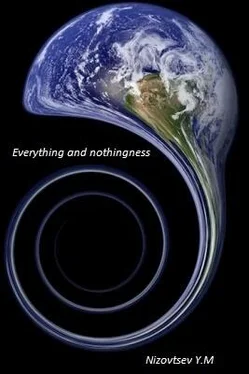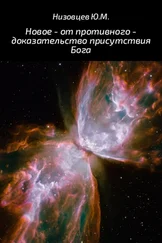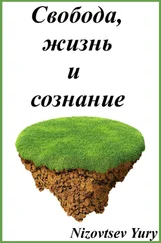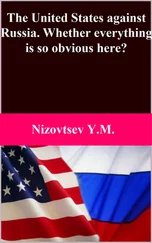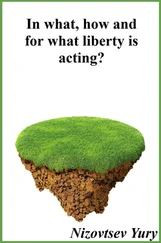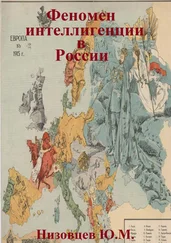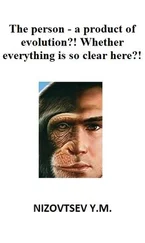Юрий Низовцев - Everything and nothingness
Здесь есть возможность читать онлайн «Юрий Низовцев - Everything and nothingness» — ознакомительный отрывок электронной книги совершенно бесплатно, а после прочтения отрывка купить полную версию. В некоторых случаях можно слушать аудио, скачать через торрент в формате fb2 и присутствует краткое содержание. Издательство: Array SelfPub.ru, Жанр: Философия, История, История, История, beginning_authors, Философия, Биология, Химия, Математика, Физика, Религиозная литература, Религиозная литература, на русском языке. Описание произведения, (предисловие) а так же отзывы посетителей доступны на портале библиотеки ЛибКат.
- Название:Everything and nothingness
- Автор:
- Издательство:Array SelfPub.ru
- Жанр:
- Год:неизвестен
- ISBN:нет данных
- Рейтинг книги:5 / 5. Голосов: 1
-
Избранное:Добавить в избранное
- Отзывы:
-
Ваша оценка:
- 100
- 1
- 2
- 3
- 4
- 5
Everything and nothingness: краткое содержание, описание и аннотация
Предлагаем к чтению аннотацию, описание, краткое содержание или предисловие (зависит от того, что написал сам автор книги «Everything and nothingness»). Если вы не нашли необходимую информацию о книге — напишите в комментариях, мы постараемся отыскать её.
Everything and nothingness — читать онлайн ознакомительный отрывок
Ниже представлен текст книги, разбитый по страницам. Система сохранения места последней прочитанной страницы, позволяет с удобством читать онлайн бесплатно книгу «Everything and nothingness», без необходимости каждый раз заново искать на чём Вы остановились. Поставьте закладку, и сможете в любой момент перейти на страницу, на которой закончили чтение.
Интервал:
Закладка:
Here, too, it appears a insufficiency of two types: the practical today may seem by one circle of things, tomorrow – another, that introduces uncertainty in the concept of the object, which also can be seen from an unexpected quarter – so appear inventions; besides, the practical is nevertheless mostly the useful, the utilitarian, excluding imagination, flight of thought, "mad" ideas, which are capable to change radically our life, and really changed it, especially for the last decades.
Truth in accordance with the growth of knowledge and practical application changes its appearance so how human consciousness goes from essences of one level to essences which are deeper. And in this sense truth corresponds to essences revealed.
Here it is possible to agree with Lenin V. I., which declared: “For the materialist the “success” of human practice proves the correspondence between our ideas and the objective nature of the things we perceive” [1, chapter 1.2]; with the amendment that "the objective nature of things," initially no, because things, which are independent of consciousness, are not exist – all of them, or rather their copies are formed by consciousness in accordance with its form-building capabilities and these copies are "given" to a person for his life and development, in the course of which evolves and changes his consciousness itself, which acquires a "transient" independence in each life of individual consciousness. Therefore, only for a individual consciousness in the person, which is "clipped" one-sided from the single consciousness, all things become independent of him during his lifetime, acquiring still and motion, change precisely in order that he could overcome the resistance of the medium out of things and other people with their own individual consciousnesses competing with him and could "compel" things to "obey" to him.
Except of the practice the stability can be criterion of truth. The stability is expressed in a number of logical deductions, virtually no checking, but based on known laws.
One cannot deny touch to truth of and by means of intuition, i.e. as the process of finding truth without the intermediate steps from the first principle to whom may be just aught appearing, inasmuch human consciousness cannot penetrate into "space" from where is taken all, that appear.
Hobbes and Berkeley till Husserl have understood this situation with the relation of sensations (consciousness) and things.
Hobbes detaches sensations with all their derivatives from objects, generating in us sensations: “And though at some certain distance, the real and very object seem invested with the fancy it begets in us; yet still the object is one thing, the image or fancy is another” [8, p. 1-2].
Separation by Thomas Hobbes sensations and objects, in essence, was the basis for the ideas of Berkeley, consisting in the fact that without existence of senses and reason existence of everything else is problematic, because nothing and no one perceive it.
Berkeley believes existence of things only due to their perception by the human mind, or his soul, inasmuch there is no evidence of separate existence of things outside human sensations: “XXIII. But say you, surely there is nothing easier than to imagine Trees, for instance, in a Park, or Books existing in a Closet, and no Body by to perceive them, I answer, you may so, there is no difficulty in it: But what is all this, I beseech you, more than framing in your Mind certain ideas which you call Books and Trees, and the same time omitting to frame the Idea of any one that may perceive them? But do not you your self perceive or think of them all the while? This therefore is nothing to the purpose: It only shews you have the Power of imagining or forming Ideas in your Mind; but it doth not shew that you can conceive it possible, the Objects of your Thought may exist without the Mind: To make out this, it is necessary that you conceive them exist unconceived or unthought of, which is a manifest Repugnancy” [9, p. 18].
To the extreme, like Berkeley, Husserl does not come, but he joins to Hobbes and Berkeley in the thought, that meditation of the primary source, or the appearing, is the true source of knowing: “No conceivable theory can make us err with respect to the principle of all principles: that every originary presentive intuition is a legitimizing source of cognition, that everything originarily (so to speak, in its “personal” actuality) offered to us in “intuition” is to be accepted as what it is presented as being but also only within the limits in which it is presented there. We see indeed that each theory can only again draw its truth itself from originary data. Every statement which does no more than confer expression on such data by simple explication and by means of significations precisely conforming to them is, as we said at the beginning of this chapter actually an absolute beginning called upon to serve as a foundation a principium in the genuine sense of the word” [10, p. 44].
Along with that Husserl, in fact, if truth is adequate to what we call essence, considers that truth is unattainable in full, i.e. as the absolute: “The specific character of certain categories essences is such that essences belonging to them can be given only “onesidedly”, in a sequence “many-sidedly”, yet never “all– sidedly”” [10, p. 8].
Hume treats truth as compliance of thinking to sensations of the person: “We perceive only properties of those forces which are available to senses" [11, p. 22]; “They are the successive perceptions only, that constitute the mind; nor have we the most distant notion of in place, where these scenes are represented, or of the materials, of which it is composed” [11, p. 253].
In its considerations Hume accurately catches that circumstance that primordial source of Whole for human consciousness are namely sensations. In this respect he is quite right, because it is through the senses information comes into control centers of consciousness of the person. Hume also is right in his doubt about existence and qualities of the things which are beyond the senses. Here he is certainly consistent in their views and findings, and differs from other thinkers in that does not take the responsibility to determine aught unknown to him, to speculate on the basis which is impenetrable for him.
However, Hume, like most of thinkers, concentrates the attention not on consciousness, and on the person, and this circumstance, naturally, leads him to not quite adequate conclusions: "… on what base we should think that the same forces will be always combined with the same felt qualities. Therefore, the principal in life is not the mind, but a habit. Only it forces mind in all cases to assume that the future corresponds to the past. How easy did not seem this step, mind never for all eternity would not be able to make it" [11, p. 22]
One can hardly argue with Hume that experience, the habit generated on its basis that is an important factor in human life, the more that Hume rightly pointed out existence of many unknown to us Forces that involves for the person a support preferably on known and clear to him.
Nevertheless, here Hume pulls together the highest consciousness inherent in the person, with the lowest consciousness, belonging to the living beings without self-consciousness. The living beings without self-consciousness really only adapts to the environment by trial and error, accumulating over many generations of genetic memory that allows them to coexist satisfactorily with the environment and to struggle with competitors on the basis of accumulated experiences and genetic memory. But all this doesn't allow living beings without self-consciousness to raise above the environment – in a result, essential change of the environment leads to death of the whole types.
Читать дальшеИнтервал:
Закладка:
Похожие книги на «Everything and nothingness»
Представляем Вашему вниманию похожие книги на «Everything and nothingness» списком для выбора. Мы отобрали схожую по названию и смыслу литературу в надежде предоставить читателям больше вариантов отыскать новые, интересные, ещё непрочитанные произведения.
Обсуждение, отзывы о книге «Everything and nothingness» и просто собственные мнения читателей. Оставьте ваши комментарии, напишите, что Вы думаете о произведении, его смысле или главных героях. Укажите что конкретно понравилось, а что нет, и почему Вы так считаете.
